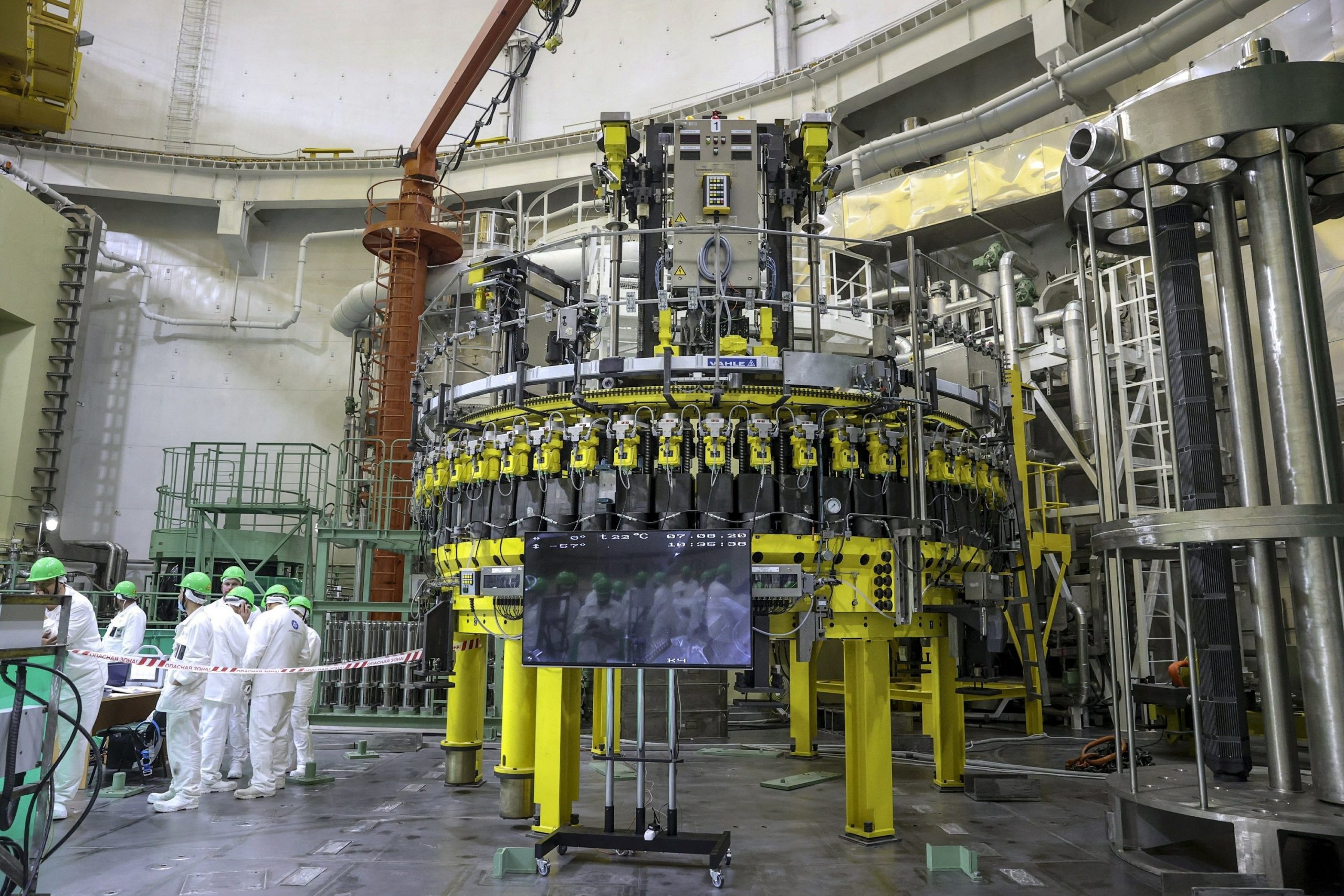MOSCOW (AFP) – Belarus’ first nuclear power plant went into operation Tuesday, a project that has raised concerns about its neighbor, Lithuania, which immediately cut off electricity imports from Belarus in the news.
The Russian-made Astravits nuclear power plant, 40 kilometers (25 miles) south of the Lithuanian capital Vilnius, was connected to Belarus’s electricity grid and started producing electricity, according to the Belarusian electrician Belenergo.
The Lithuanian authorities have long opposed the construction of the plant, arguing that the project suffers from accidents, stolen materials and abuse of workers. In keeping with the country’s law prohibiting electricity imports from Belarus once the plant was put into operation, a Lithuanian power operator, Lithuania, cut off the flow of electricity from Belarus upon receiving data that the Astravitz nuclear reactor had begun producing energy.
Russia’s state nuclear company Rosatom, which built the plant, rejected Lithuanian complaints, saying the plant’s design complies with the highest international standards as confirmed by the International Atomic Energy Agency, a United Nations monitoring body.
The company also insisted that it “has a zero tolerance policy for corruption and an internal control system that ensures that any illegal or inappropriate practices are stopped and the perpetrators prosecuted.” She said the launch of the project will help reduce carbon emissions in the region by up to 10 million tons of carbon dioxide equivalent each year.
“We are working closely with the National Nuclear Regulatory Authority of Belarus, the Global Association of Nuclear Operators, and with the European Union Nuclear Safety Regulators Group in the European Union to make sure that there are no risks or ‘safety threats’ that have not been addressed, ” Rosatom said in a statement. Associated Press.
Construction of the power plant was delayed when the reactor body slid to the ground in July 2016 after workers failed to properly connect it during installation. Rosatom insisted at the time that the reactor was not damaged, but agreed to replace the unit at the request of the Belarusian authorities.
Belarus suffered massive damage from the Chernobyl nuclear disaster in 1986, which caused radioactive fallout from a factory in then Soviet Ukraine across large areas of Europe. This painful legacy has sparked opposition to the Belarus nuclear power plant project.
Lithuania closed its only Soviet-built nuclear power plant in 2009 and banned energy purchases from Belarus.
In recent weeks, Lithuanian authorities have distributed free iodine pills to people who live near the Belarus border. Iodine can help reduce the buildup of radiation in the thyroid gland if the radioactivity leaks.

Typical creator. Subtly charming web advocate. Infuriatingly humble beer aficionado.

